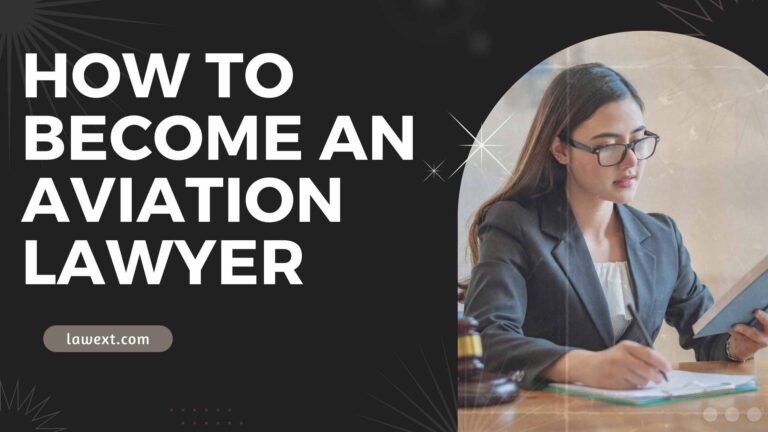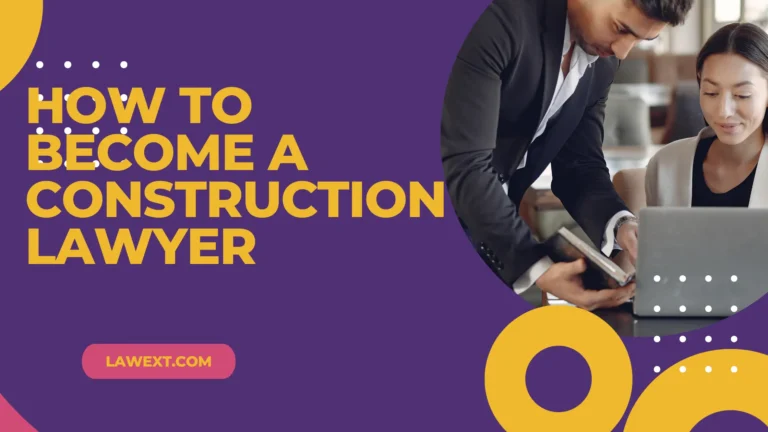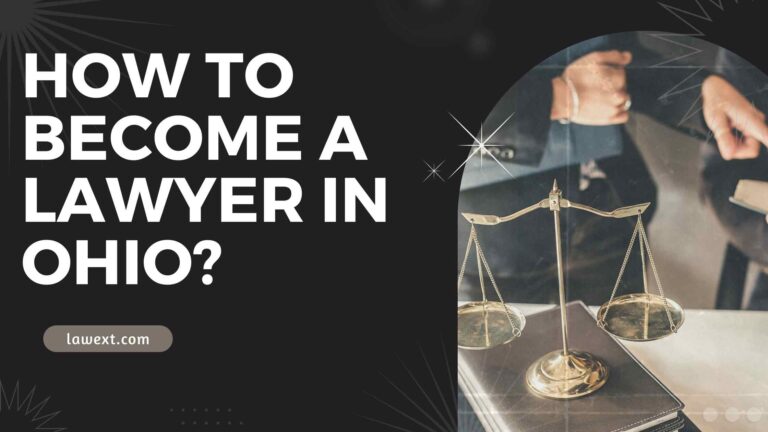How to Become an Employment Lawyer?
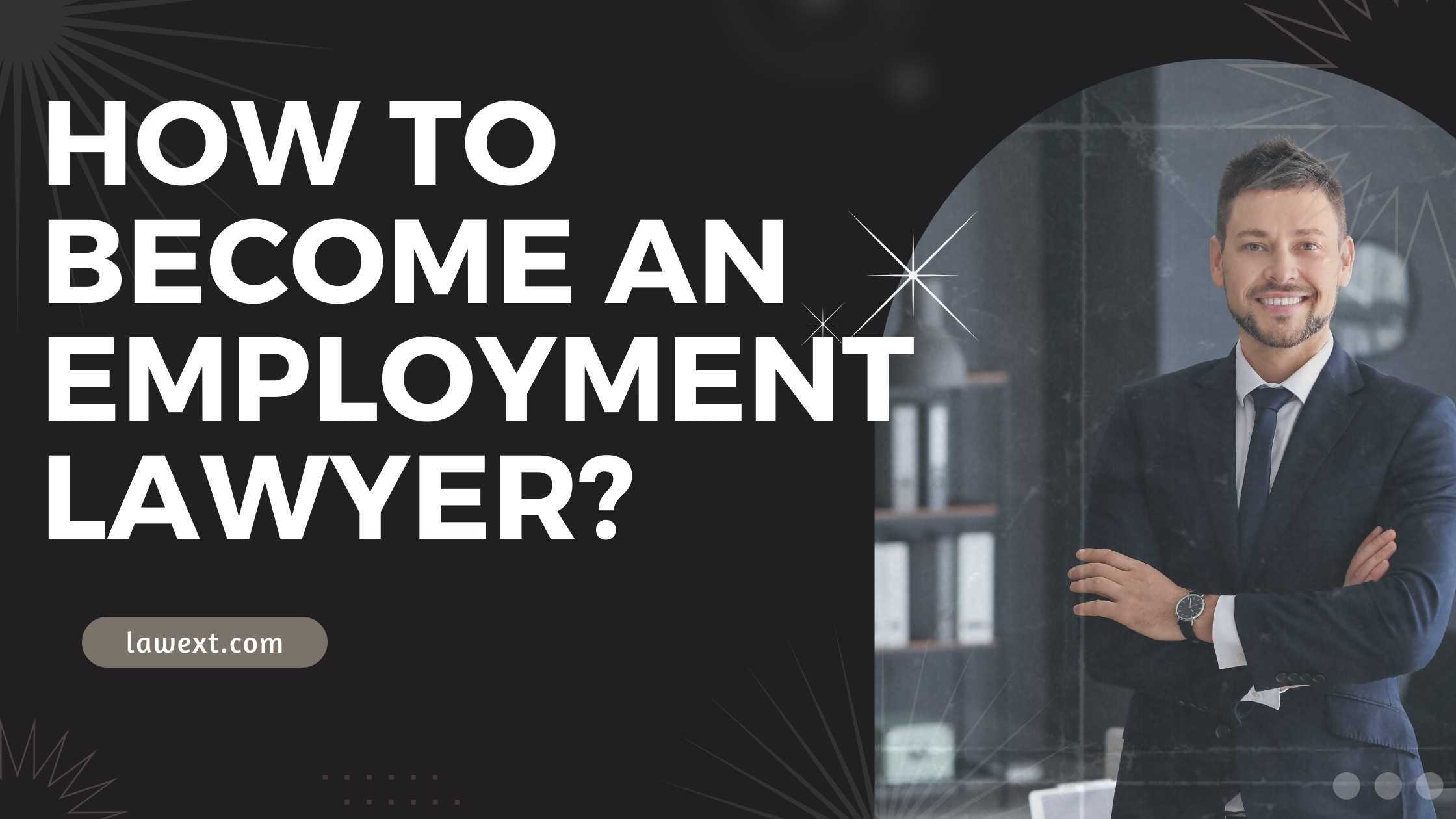
To become an employment lawyer, you need to earn a bachelor’s degree, complete law school, and pass the bar exam. The path to becoming an employment lawyer involves obtaining a bachelor’s degree, attending law school, and passing the bar exam.
Table of Contents
How to Become an Employment Lawyer? This specialized field focuses on the legal issues surrounding employment relationships, including discrimination, wrongful termination, and labor disputes. As an employment lawyer, you may represent employees, employers, or both, depending on your chosen career path. With the demand for legal professionals in employment law increasing, pursuing this career can offer a rewarding and intellectually challenging path within the legal field.
Education And Qualifications
Becoming an employment lawyer is an admirable career path that requires a specific set of skills, knowledge, and qualifications. Education plays a vital role in preparing aspiring lawyers for this challenging field. In this article, we will explore the education and qualifications necessary to pursue a successful career as an employment lawyer, which includes obtaining an undergraduate degree, attending law school, and passing the bar exam.
Undergraduate Degree
Before aspiring lawyers can attend law school, they must first complete an undergraduate degree. While there is no strict requirement for the type of degree, pursuing a Bachelor of Arts (BA) or Bachelor of Science (BS) in a related field such as political science, labor relations, or pre-law can provide a solid foundation for understanding the legal landscape. Additionally, coursework in writing, research, critical thinking, and public speaking can enhance the necessary skills for a successful career as an employment lawyer.
Law School
After completing an undergraduate degree, aspiring employment lawyers must attend law school to receive a Juris Doctor (JD) degree. Law school typically takes three years of full-time study to complete. During this time, students delve into various areas of law such as civil procedure, contract law, and constitutional law. It is recommended that students take elective courses focused on employment and labor law to gain a deeper understanding of this specialized field.
Bar Exam
Once students graduate from law school, they must successfully pass the bar exam in their chosen jurisdiction to become licensed lawyers. The bar exam evaluates a candidate’s knowledge of legal principles and their ability to apply them to practical scenarios. Each jurisdiction may have different requirements and variations of the exam. It is essential for aspiring employment lawyers to thoroughly prepare for the bar exam by reviewing previous exams, participating in mock exams, and seeking guidance from experienced lawyers or bar prep courses.

Specialize In Employment Law
Specializing in employment law is a crucial step for aspiring employment lawyers who are passionate about advocating for employees’ rights and navigating the complex legal landscape of workplace relationships. By choosing to focus on this specialized area of law, you can develop a deep understanding of employment-related statutes and regulations, and hone the skills necessary to provide effective legal representation for both individuals and organizations.
Understanding The Field
Before diving into specialization, it’s essential to understand the multifaceted nature of employment law. This field encompasses a broad range of legal issues related to the employer-employee relationship, including hiring and firing practices, workplace discrimination, wage and hour laws, and employee benefits.
Gaining Experience
To build a strong foundation in employment law, gaining practical experience is invaluable. Seek internships or clerkship opportunities with law firms that specialize in employment law, or pursue positions within human resources departments, labor unions, or government agencies.
Building A Network
Building a network within the employment law community is essential for staying informed about industry trends, accessing mentorship opportunities, and potentially securing future employment prospects. Engage with professionals through bar association events, legal seminars, and networking platforms to expand your connections and gain insights into the field.
Developing Key Skills
Gain the necessary skills to become a successful employment lawyer by developing a deep understanding of employment laws and regulations. With a comprehensive knowledge of labor issues and effective communication skills, you can excel in this profession.
Analytical Skills
Analytical skills are essential for becoming a successful employment lawyer. As an employment lawyer, you will often be faced with complex legal issues that require critical thinking and problem-solving abilities. Your role will involve analyzing various legal documents, including contracts, laws, and regulations, to understand their implications and find solutions for your clients.
Developing strong analytical skills can be achieved through a combination of education, training, and practice. It is important to foster your ability to identify relevant facts, break down complex issues into manageable parts, and evaluate different perspectives. Regularly engaging in legal research and staying updated with employment laws and regulations will help you sharpen your analytical skills over time.
Research And Writing Skills
Research and writing skills are crucial for the role of an employment lawyer. Effectively researching and understanding legal concepts, precedents, and case law is essential to building a strong legal argument. Furthermore, the ability to articulate your thoughts clearly and concisely through written communication is vital for drafting legal documents, such as contracts, pleadings, and briefs.
To enhance your research and writing skills, it is recommended to take courses or seek mentorship from experienced professionals. Familiarize yourself with legal research databases and practice proper citation techniques. Additionally, regularly engaging in writing exercises, such as drafting memoranda or participating in legal writing competitions, can help refine your writing skills and develop your own unique voice as a legal professional.
Negotiation And Communication Skills
Being able to negotiate effectively and communicate clearly is paramount for an employment lawyer. You will often find yourself mediating disputes between employers and employees, or representing clients in negotiations with other parties. Your ability to communicate persuasively and empathetically can greatly impact the outcome of these negotiations.
To develop strong negotiation and communication skills, it is beneficial to seek opportunities to participate in negotiation workshops or simulation exercises. Actively listening, seeking common ground, and being able to articulate your client’s interests are key components of effective negotiation. Additionally, engaging in activities that enhance your public speaking skills, such as joining a debate club or Toastmasters, can greatly improve your ability to communicate confidently and persuasively in a professional setting.
Overall, developing key skills such as analytical abilities, research and writing proficiency, and negotiation and communication skills are essential for becoming a successful employment lawyer. By continuously honing these skills, you will be well-equipped to navigate the complexities of employment law and provide effective legal representation for your clients.
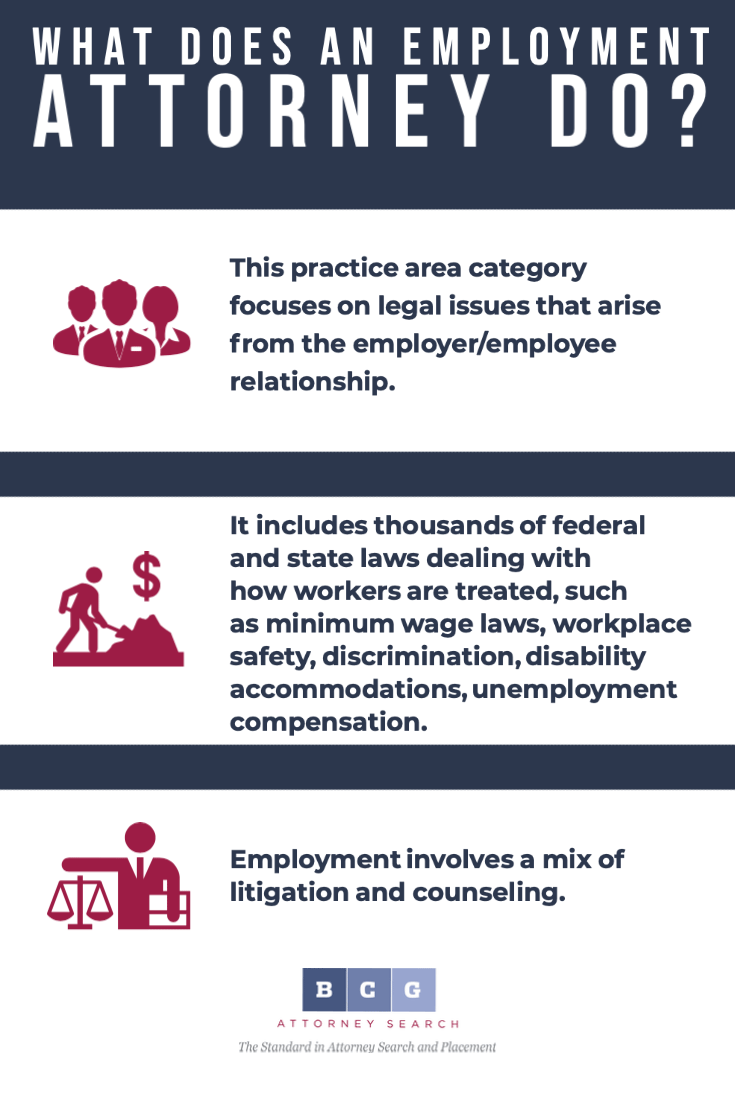
Credit: www.bcgsearch.com
Finding Employment Opportunities
Becoming an employment lawyer can open up a world of professional opportunities. With the right combination of qualifications and experience, you can navigate the legal field and advocate for workers’ rights in various industries. Discover how to embark on this rewarding career path and make a difference in the field of employment law.
Internships And Clerkships
One of the most effective ways to kickstart your career as an employment lawyer is by securing internships and clerkships. These opportunities provide invaluable hands-on experience, allowing you to understand the intricacies of employment law firsthand. When applying for internships, consider reaching out to law firms, government departments, or non-profit organizations that specialize in labor and employment law.
During your internship or clerkship, you will have the opportunity to work closely with experienced lawyers, observing their daily tasks and gaining practical skills. This exposure can also help you build professional connections in the legal field, which may prove beneficial later in your career.
Job Search Strategies
When it comes to finding employment opportunities in the field of employment law, it is essential to employ effective job search strategies. Start by researching law firms and organizations that focus on labor and employment law. Look for positions that align with your interests and goals.
Networking plays a crucial role in the legal profession. Attend industry events, join professional organizations, and leverage social media platforms like LinkedIn to connect with lawyers and professionals in the field. Building a strong network can open doors to job opportunities that may not be advertised publicly.
Additionally, tailor your resume and cover letter to highlight your experience and passion for employment law. Be sure to emphasize any relevant coursework, internships, or research projects you have undertaken. Consider showcasing your knowledge and expertise by writing articles or blog posts related to employment law, and sharing them on platforms that legal professionals frequent.
Consider Starting Your Own Practice
While it may seem daunting, starting your own practice as an employment lawyer can be a rewarding career path. It allows you to have greater control over your work and clients. However, this route requires careful planning and preparation.
Before starting your own practice, gain experience working in a law firm or legal department. This will help you develop the necessary skills to handle various employment law cases and build a reputation within the legal community. Consider specializing in a specific area of employment law to differentiate yourself from competitors.
To successfully start your own practice, create a business plan outlining your target market, services offered, and marketing strategies. Establish a strong online presence through a professional website and social media platforms. Building relationships with other lawyers, recruiters, and industry professionals can also provide referral opportunities to grow your client base.
Continuing Education And Professional Development
If you aspire to become an employment lawyer, continuing education and professional development are essential for staying abreast of current industry trends and legal practices. By participating in various forms of education and development opportunities, you can enhance your knowledge, skills, and network within the legal community.
Continuing Legal Education
Continuing legal education (CLE) is a mandatory requirement for lawyers to maintain their licensure. This ongoing education ensures that employment lawyers stay updated on changes in legislation, regulations, and judicial rulings specific to employment law. Participating in CLE programs through seminars, webinars, or online courses provides valuable insights and keeps employment lawyers informed about the latest legal developments.
Joining Professional Associations
Joining professional associations allows employment lawyers to connect with a community of legal professionals who specialize in employment law. Being a member of organizations such as the National Employment Lawyers Association or the American Bar Association’s Section of Labor and Employment Law provides access to resources, networking events, and continuing education opportunities tailored to employment law. Participation in such associations fosters continuous professional development and keeps lawyers updated on industry best practices.
Attending Workshops And Conferences
Attending workshops and conferences focused on employment law offers the chance to delve deeper into specific legal topics, expand professional networks, and gain insights from leading experts in the field. These events typically cover timely issues and provide practical knowledge that employment lawyers can leverage to enhance their practice. Additionally, workshops and conferences serve as platforms for sharing experiences, learning from peers, and gaining valuable insights to stay competitive in the field of employment law.

Credit: www.juriseducation.com
Conclusion
In a dynamic field like employment law, acquiring the right skills and qualifications is crucial. By gaining relevant experience, obtaining a law degree, and staying abreast of industry developments, one can pave the way to a successful career as an employment lawyer.
With determination and dedication, you can make a difference in the legal landscape.
Introducing Jonah Plum, a legal luminary whose journey through the corridors of justice has been intertwined with the eloquence of the written word. Born and raised in the vibrant city of Seattle, Washington, Jonah's early fascination with language and debate laid the foundation for a remarkable career in law.
Jonah's scholarly odyssey began at Harvard Law School, where they immersed themselves in the study of jurisprudence, honing their analytical prowess and legal acumen. Armed with a law degree, they entered the legal arena, navigating courtrooms and boardrooms with a fervor for justice. Yet, it was the realization of the transformative power of the written word that led Jonah to pivot from legal briefs to the world of blogging.
A digital advocate in the truest sense, Jonah recognized the need for demystifying legal concepts and making them accessible to a broader audience. This blog, a virtual repository of legal insights, transcends geographical boundaries, connecting with a global readership hungry for clarity amidst legal complexities.
Beyond the black letter of the law, Jonah delves into the human stories that underscore the legal landscape. Their writing goes beyond legal analysis, weaving narratives that humanize the law, shedding light on its impact on individuals and society.

